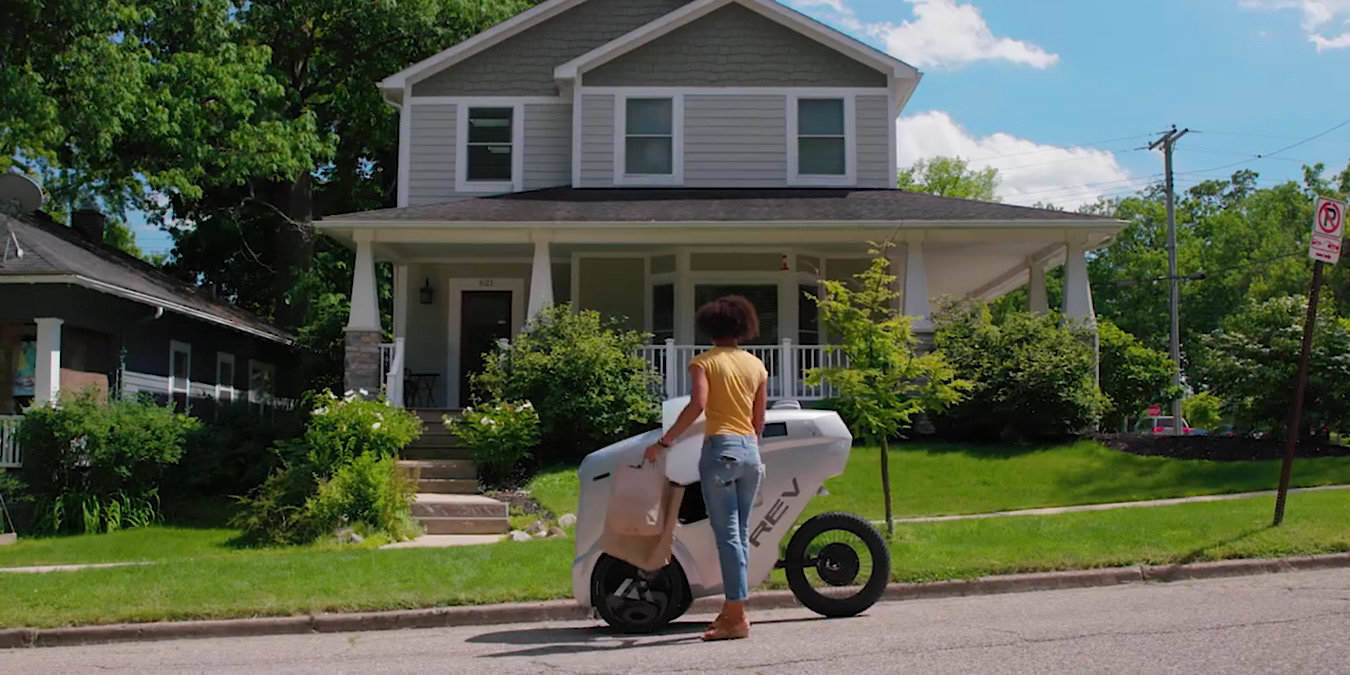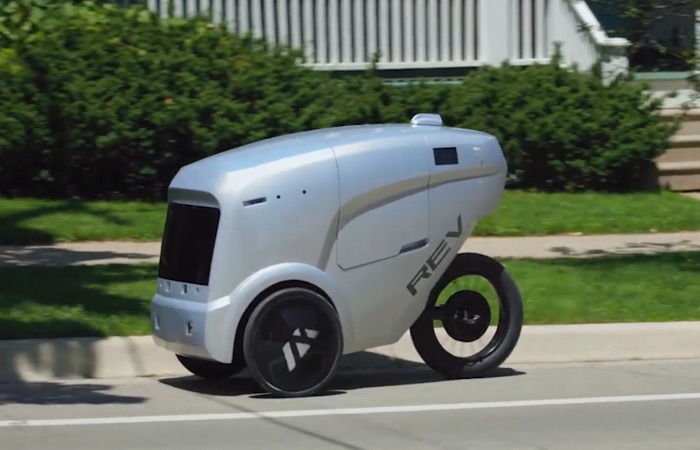
While completely autonomous cars for consumers are still on the wishlist, autonomous delivery vehicles are picking up steam.
However, they don’t always resemble a car. The REV-1 is a new autonomous delivery vehicle that will operate more like a bicycle than a car, or more precisely a tricycle because of its three wheels.
REV-1 Delivery Vehicle
The Refraction AI startup in Ann Arbor, Michigan, designed the REV-1 to operate more like a bicycle on city streets. The four-foot-tall delivery robot weighs just 80 pounds and travels at a maximum speed of 15 mph.
The size allows it to travel in both car and bike lanes, which Refraction AI says allows it more flexibility while not jamming up traffic. It can also come to a full stop in just five feet, so it only needs lower-cost sensors to help it see where it’s going and avoid collisions.
“We’re trying to emulate what it is to be a cyclist,” said Refraction AI’s co-founder as well as the co-director of the UM Ford Center for Autonomous Vehicles, Matt Johnson-Roberson.
Two restaurants in Ann Arbor already use the REV-1 to make deliveries to employees. The company has plans to expand deliveries to the general public in the coming months.

Once the REV-1 service schedule is expanded, it will be competing with other food deliveries from Kroger, Domino’s Pizza, Uber, Nuro, Waymo, Walmart, Amazon, Doordash, and Starship Technologies.
Inside the REV-1 is 16 cubic feet, which will hold about four grocery bags. It’s one of the smallest autonomous delivery vehicles currently operating as well as one of the smallest. Nuro’s R1 has been delivering Kroger groceries in Houston, Texas, and Scottsdale, Arizona for the past year. It’s about half the width of a Toyota Corolla and can travel up to 25 mph.
The REV-1 doesn’t use expensive, complicated navigational tools and relies on multiple cameras, radar, and ultrasound. This keeps the cost very low, around $5,000.
REV-1 Is Safer as Well
“Their vehicles are also lightweight enough to deploy more safely than a self-driving car or large robot,” said the managing director of eLab Ventures, Bob Stefanski. He adds that “the market is huge, especially in densely populated areas.”
The REV-1 is currently making its deliveries between .5 and 2.5 miles in Ann Arbor, and Stefanski believes this type of distance will allow it to jump easily into the delivery solutions market.
While the multiple questions surrounding autonomous cars are being hammered out, these smaller driverless delivery vehicles seem the best use of current autonomous technology. They are definitely answering a need in the market.
Would you welcome a small delivery vehicle such as the REV-1 to deliver your groceries, pizza, or other to-go meal? Or would you rather pick it up yourself or have it delivered by a human in a car? Let us know your thoughts in the comments below.
Image Credit: Refraction AI on YouTube







